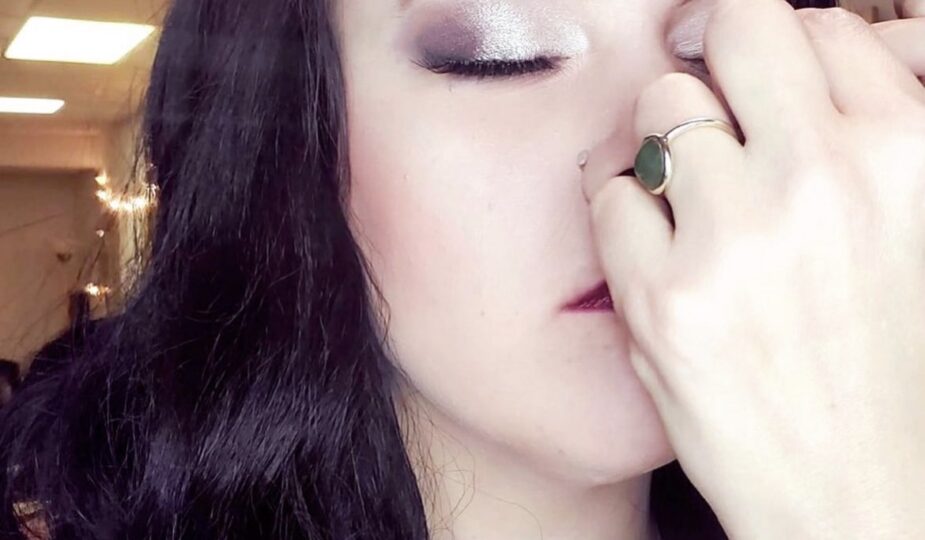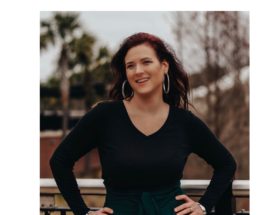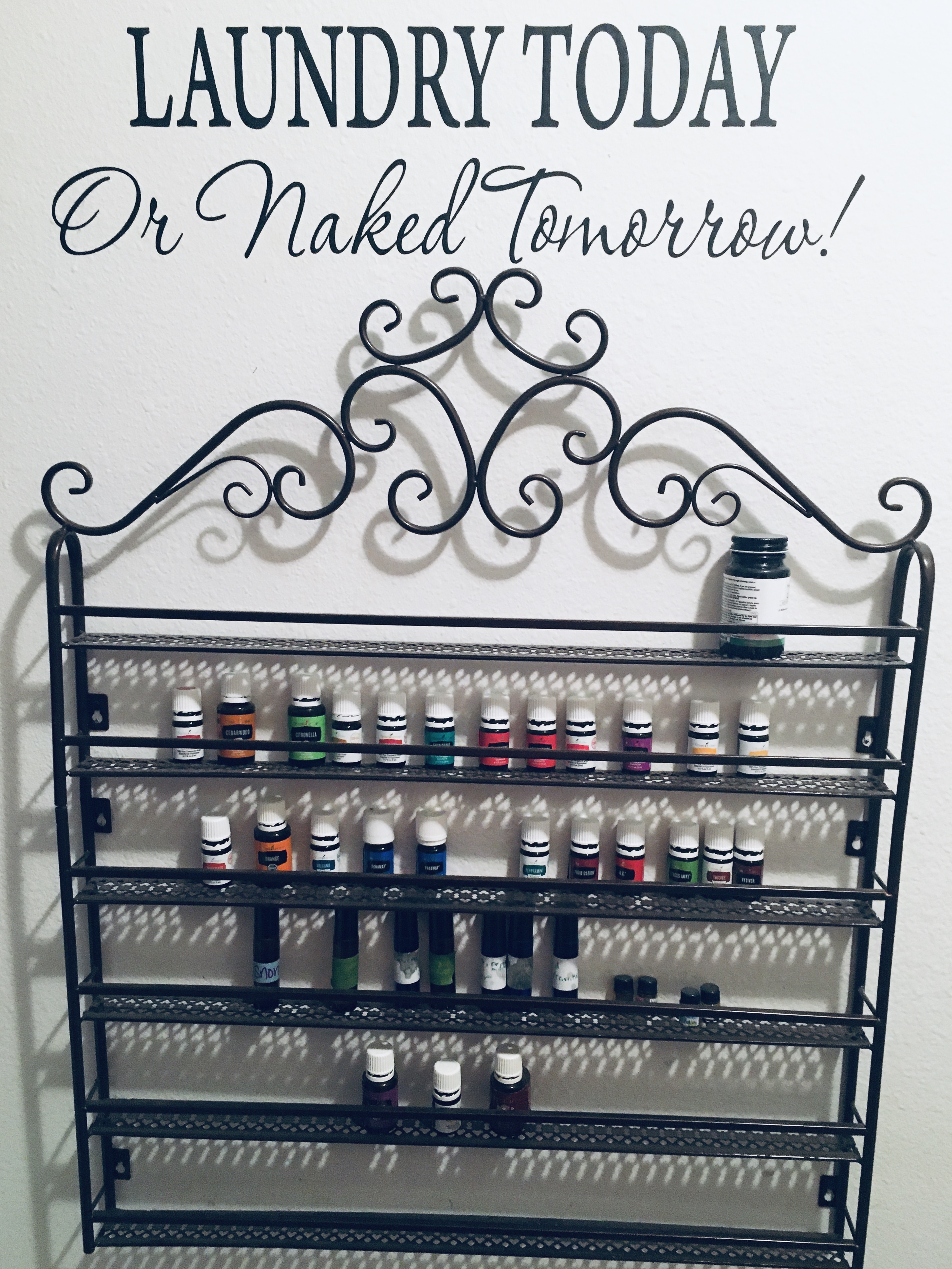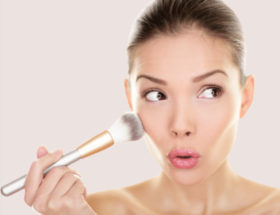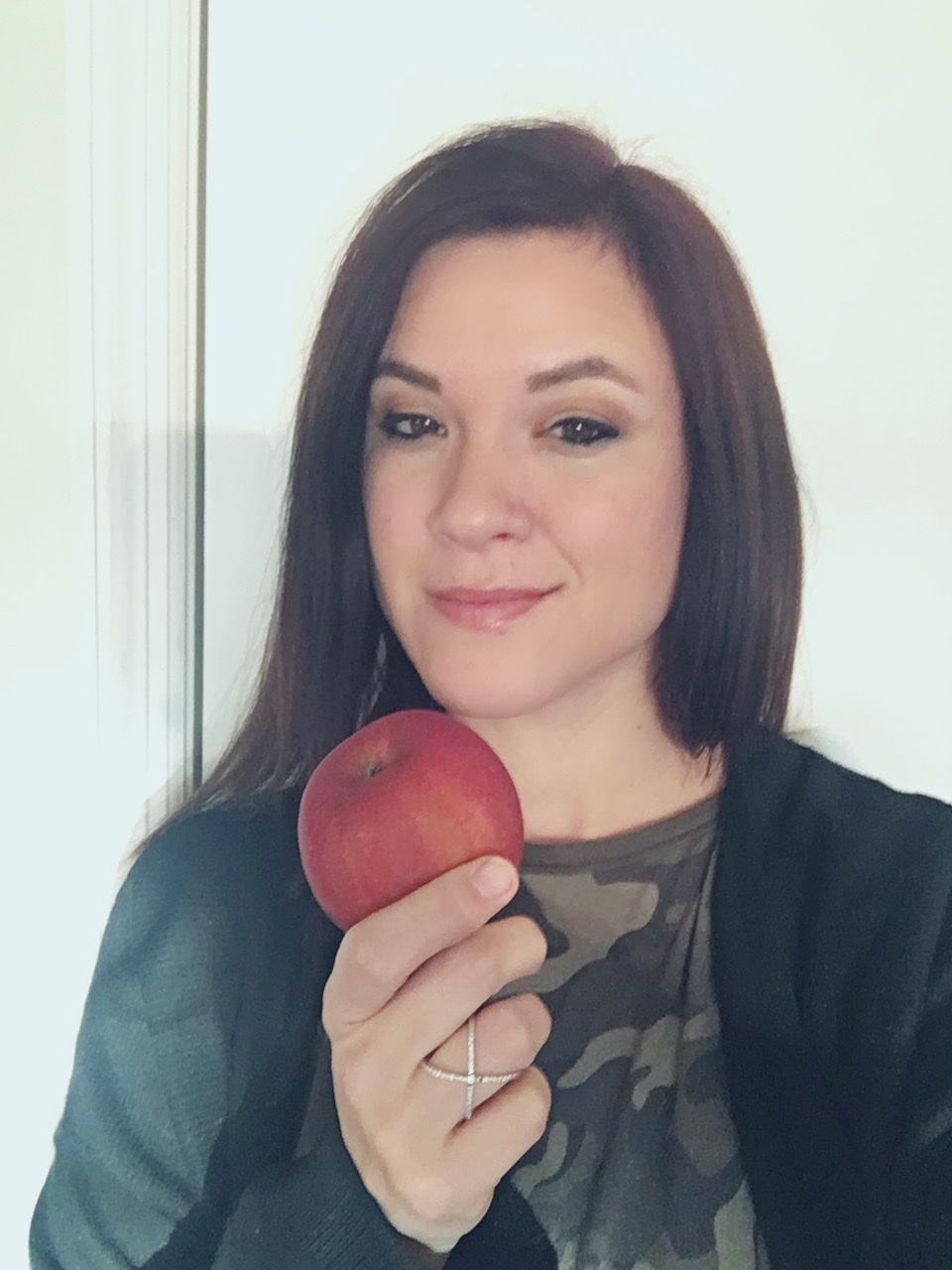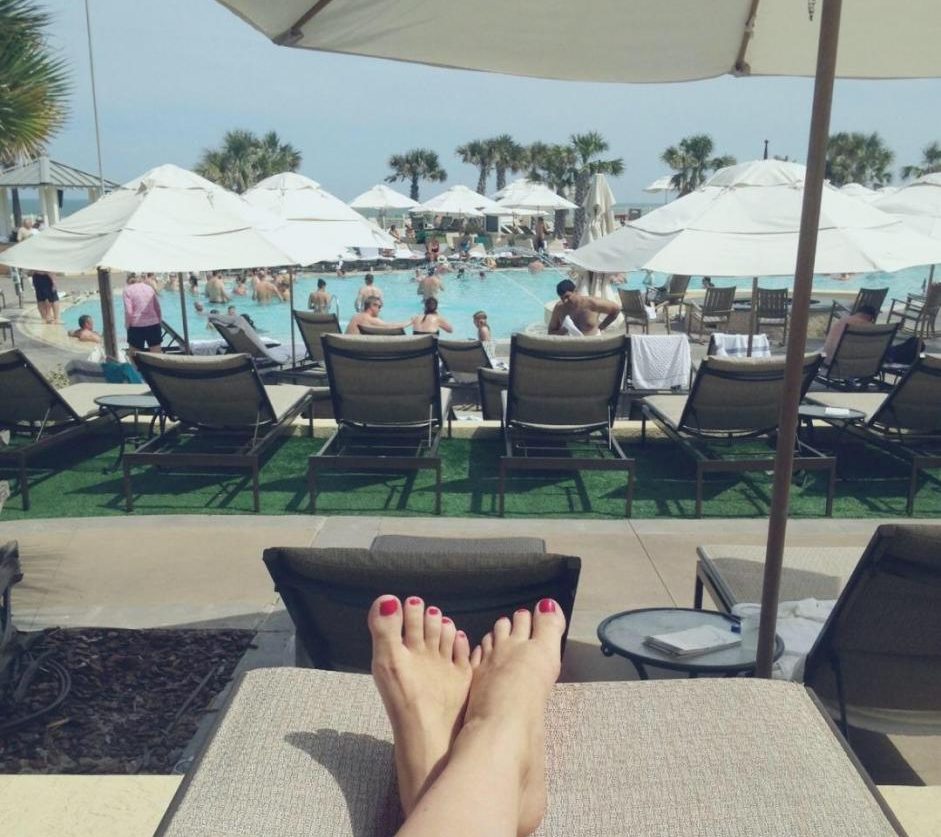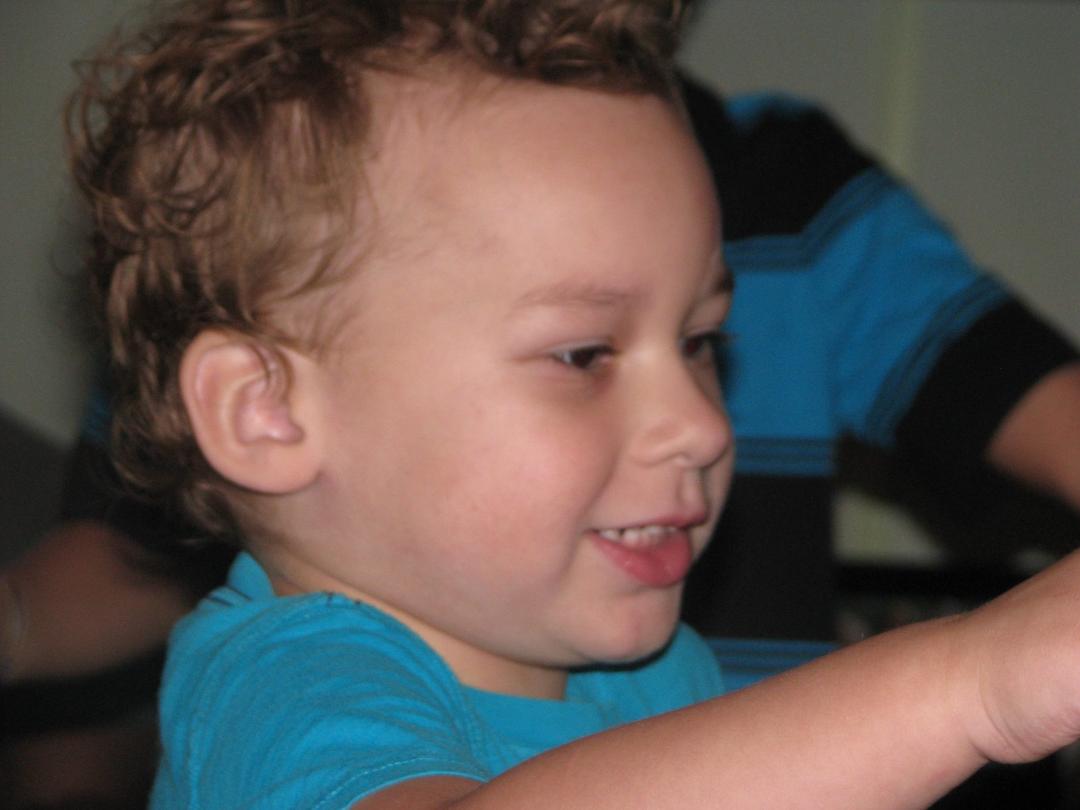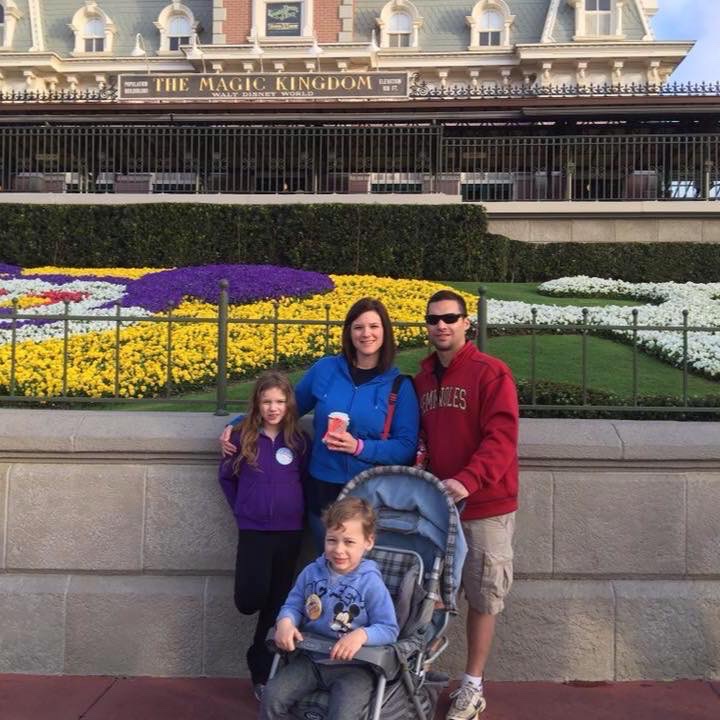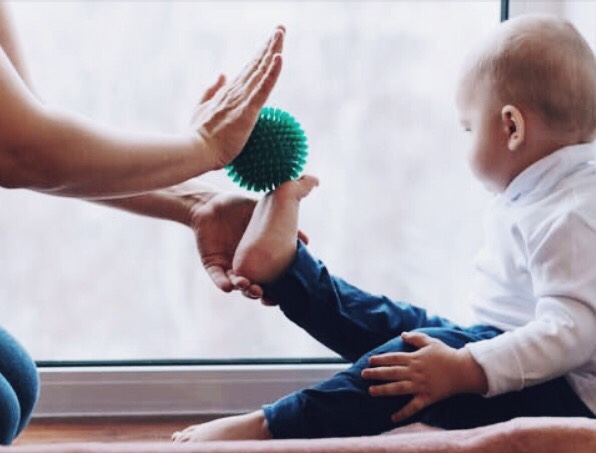Shopping for a bridal makeup artist for your wedding? There are quite a few things to consider, some of which you might never have thought about. As a new professional makeup artist that just entered the wedding scene this past year, I’ve discovered some well-known (as well as not so well-known) industry secrets I hope to share with you in this article below.
*Affiliate Disclaimer: This post includes ads/affiliate links, where I make commission on some of my recommendations/beauty picks. As an Amazon Affiliate, I earn on qualifying purchases.
Experience and Background
Obviously one of the top things you want to know is whether you will like the makeup your artist provides for you. First, you want to be familiar with their style of work and whether it resonates with you. There are a range of styles from very glam and “snatched” to natural or glowing. Some brides are particular and others are not. I’ve had those who wanted all mattes versus all out glitters and shimmers. And then, there are even some brides who come with an exact picture or idea of the look they want to request.
The first thing I’d recommend is to ask for a sample of their work and to look over their portfolio. For example, I keep a portfolio of my work on my website, so that it is one of the first things a prospective bride sees. Next, ask the artist some questions about how flexible they are. Do they have a standard look they do for everyone or do they customize the look for what you have in mind? You’ll find that some artists are not that flexible and it’s good to know ahead of time. Finally, I highly recommend that you go forward with a bridal trial. This allows you an initial consultation with your MUA to get comfortable with them, as well as to run through a practice session. You don’t want to be surprised or disappointed with the look you’re getting on your big day.
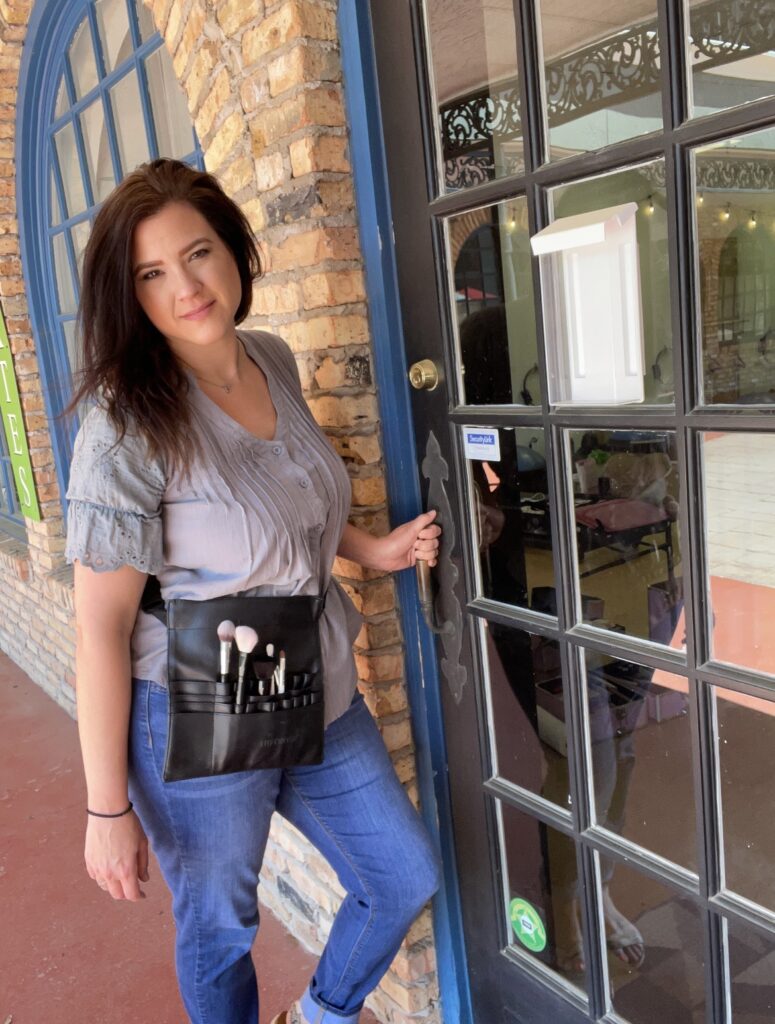
Experience certainly goes a long way, as well. It can be reassuring to find an artist that has many years of diverse experience. This hopefully gives you a better chance of finding someone who knows how to handle different skin types and different scenarios that might pop up. It’s also nice to know they probably have a lot of experience for dealing with the rigorous schedule on the wedding day and how to keep things moving smoothly, despite any unforeseen circumstances. However, just keep in mind that experience is not always a guarantee that you will be satisfied. I’ve found that your more seasoned artists out there tend to be a little more strict about accommodating extra wishes and might not be quite as flexible as your less experienced artists (like myself, lol). I don’t say that because I blame them. They’ve learned over the years how to deal with no shows, late add-ons, and a lot of really frustrating or inconsiderate clients they have come across in the industry. Each artist has their own policies and handles contracts differently.
For example, you have some MUAs that won’t even accept work from a bridal party under a certain minimum number. There are only so many Saturdays (the most common wedding days) in the year, and also time away from their own families. Therefore, they may only prioritize the bigger, more lucrative weddings. You may also have some artists who will not allow the bridesmaids and members of the bridal party to choose their looks. They have a set standard look for everyone and stick to that routine to keep the schedule flowing quickly. As a fairly new artist, however, I take a lot of time with my clients. In fact, I have had brides who became friends and frequently text me different makeup questions, because they know that my lines are always open to them. These are all things you want to consider when deciding on who to choose as your artist. It is up to you whether experience is more important to you versus flexibility and personalization.
Wedding Makeup Rates
Next, let’s talk about another obvious factor to consider and that is the price. Have you wondered why bridal makeup can be so expensive? There is so much that goes into it. Think about how pricey a visit to your hair salon can be. By the time I walk away from a session with my hairdresser for a cut, color and wax, I spend well between $100-$200 easily. However, I think about all the inventory that my hair specialist has invested in to stock the tools she needs to do my hair and it is not much compared to how much inventory a makeup artist must furnish. Each MUA has to carry every different shade of each type of product from foundation to brow shades to contour to powders to concealers. Double the inventory if they stock every airbrush shade, as well (which we’ll discuss in a different section). Plus, the MUA has hopefully done their research on which brands and products are best for flash photography, indoor versus outdoor weather, different skin types, color combinations and long-wearing products. On top of this, artists are constantly restocking basic sanitation and disposable products, plus lashes and beauty blenders, etc. When you add all these little details up, the costs to stock a typical makeup kit are extremely high. Yet the average person sometimes expects makeup services for super on the cheap, which are simply not sustainable prices, given just how much is required to stock a proper kit.
You do see some variations in makeup rates across the region. Your typical MUA will set prices based on average prices in your city or location, their level of experience and particular niches, and the quality and range of their products in their kit. These are all things to consider when looking at rates to determine what you are getting for the price you are paying.
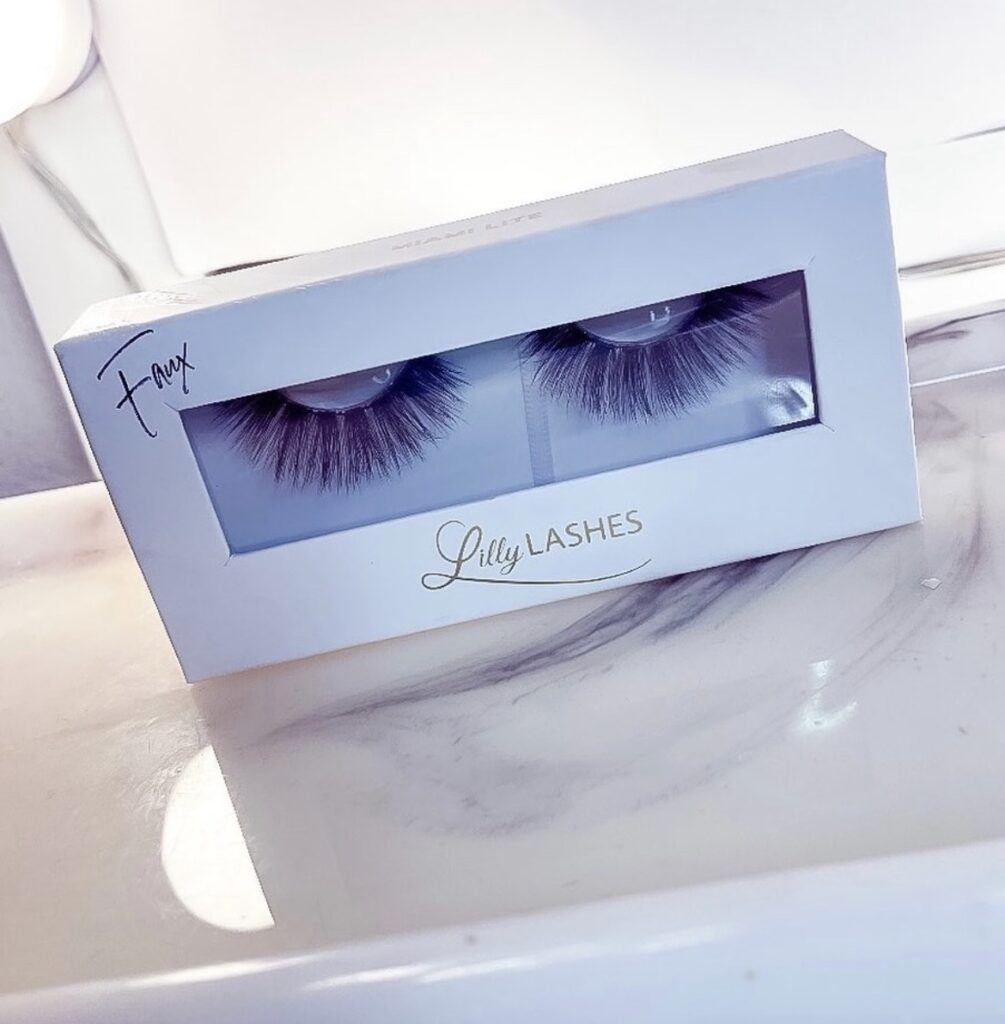
Another factor in considering rates is what type of packages and services are included. Some MUAs include false lashes as part of the price, while others will charge separately. Some will also include a complimentary bridal trial in the package, while others may not. You may even find that some include basic skincare as a prep stage before the makeup, while others may charge for skincare as a bonus service.
Most makeup artists travel on-site, especially for weddings where you are often getting ready at the venue or hotel. However, some will charge standard mileage or if traveling long-distance, will most likely charge for lodging and food expenses. Always check ahead of time to determine what extra fees will add up for travel. It may be that it is cheaper to hire a high-priced local MUA than a more affordable one with added travel expenses. This is something you want to ask up front rather than feeling you have to back out once you view the prices in the contract in detail.
Also remember that it is somewhat standard to tip on top of the rates being charged. This is a detail that is often overlooked until it’s time to pay your artist. Therefore, keep this in mind for your final budget.
Some questions to ask your prospective MUA about what types of things are built into their rates:
- False lashes
- Skincare masks, moisturizers, under eye masks, etc
- Airbrush versus traditional foundation
- Bridal touch up kits (and what is included)
- Bridal trial to practice the look
- Travel expenses for on-site makeup
Makeup Products
Next, you want to consider what type of products and makeup are being stocked in your MUA’s kit. Not every client is well versed on well-known brands, but there is a range out there on high end, high-quality products versus less professional quality drugstore products, etc. Keep in mind that some drugstore or lower end products do not indicate lower quality in service. There are quite a few affordable products out there that perform just as well as their high-end counterparts. However, there are certain products, such as foundation particularly, where you would not want your artist to skimp. It is helpful to know whether your artist’s products match their prices well. If you are paying luxury prices, you will want to expect quality products to show for it.
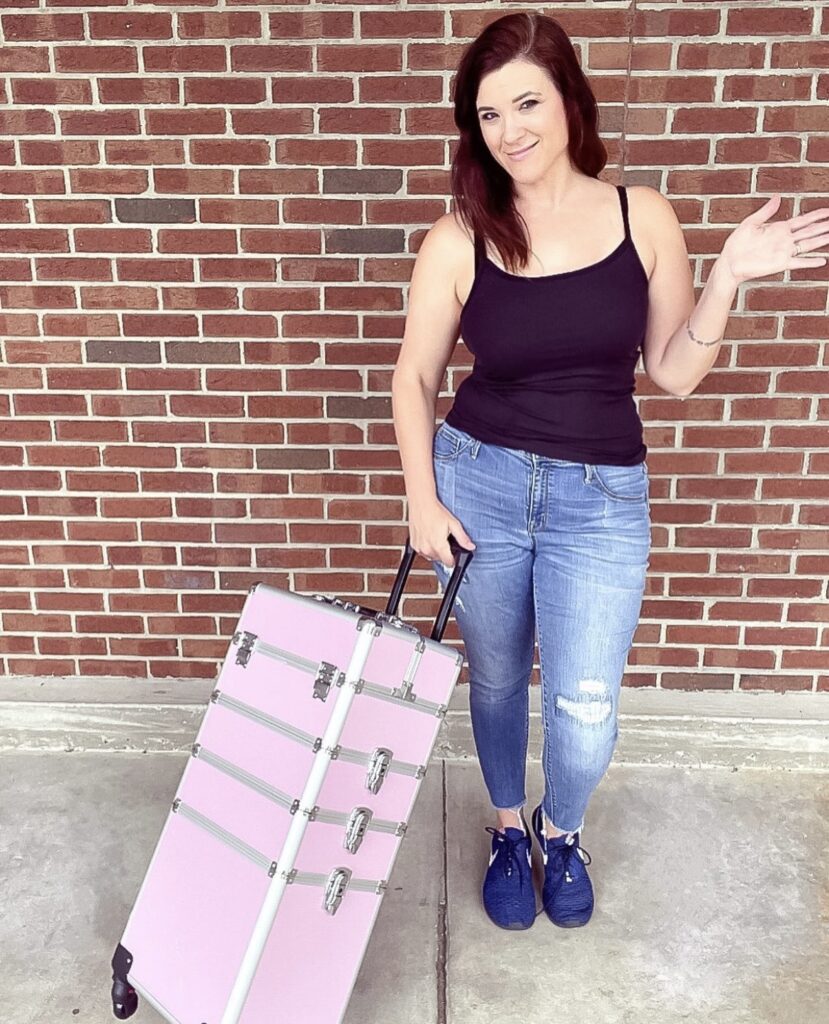
Additionally, you may have other factors to consider such as skin sensitivities or your ethical values. A growing trend in beauty is certainly clean and nontoxic ingredients. It pays to know whether your artist carries brands that will not be toxic to your skin, especially on your wedding day. Nobody wants a break out from the products they are wearing. While you can’t 100% rule out all allergies and sensitivities, you are less likely to have skin issues on your big day if the products you are wearing tout clean ingredients. Another trending factor in beauty is whether a brand is vegan and/or cruelty-free. Many brides these days are asking for vegan makeup. It can often be difficult to find an artist that offers only vegan products, but this is something you want to ask to see if any specialize as a vegan makeup artist like myself.
There are other issues to look for in makeup, as well. MUAs should be knowledgeable of which types of products work best with photography as well as which products work best with skin types and weather conditions. For example, you want to know that your artist is stocking products that avoid photography flashback, which tend to be an issue especially in certain setting powders and foundations. Additionally, if you are prone to oily skin and are having an outdoor summer wedding in a very warm humid location like here in Florida, you want to ensure that your artist plans their products accordingly.
Airbrush versus Traditional Foundation
Another thing to consider is whether your artist offers airbrush foundation versus traditional. What is airbrush foundation? It is a technique that uses compressed air to mist foundation on the skin. There are many benefits for your wedding day, including the flawless finish it gives off in person and in photography. It is also a nice light-weight option that does not get cakey, but can still offer full coverage. Another benefit with airbrush is the fact that it is water-resistant. This means that the makeup does not rub off onto your white bridal gown or on others with a day or evening full of tears, sweat and hugs. This does not mean it is any better that traditional foundations, however. In some cases, you may prefer traditional, especially if you have certain skin issues you want to cover. Traditional foundations can offer more full-coverage and specialized formulations. Therefore, you want to weight the pros and cons to determine which option you prefer. If airbrush is something important to you, you’ll want to shop for those who carry airbrush products and ask about which airbrush brands they use.
Wedding Day Routine
The next questions to ask your MUA is how they handle the wedding day schedule itself. Most brides are shocked to learn how long the makeup and hair process can take for a full bridal party. Typically, makeup will take even longer than hair. I’ve done weddings where both the hairstylist and I worked on the same person at the same time, yet the hairstylist was able to rotate two more people in while I was still finishing up the same individual. The average time for doing makeup is about one hour per person, maybe 45-50 minutes if you are extremely quick. Even your most seasoned artists don’t rush and do makeup for less time than that. And, trust me, you don’t want your artist to rush the job on your big day! But when you are trying to fit in all the bridesmaids and the family members who also want makeup, you can end up taking six plus hours at that rate! Usually we will determine what time the bridal party has to be ready for pictures and we count backwards from there as to what time we have to get started. So, for example, if the photographer is arriving at 1 pm and you have 5 people who need makeup, then we get started at 8:00 am sharp. Sometimes, we are able to prioritize those who need to go first for pictures and send out others as we are finishing them.
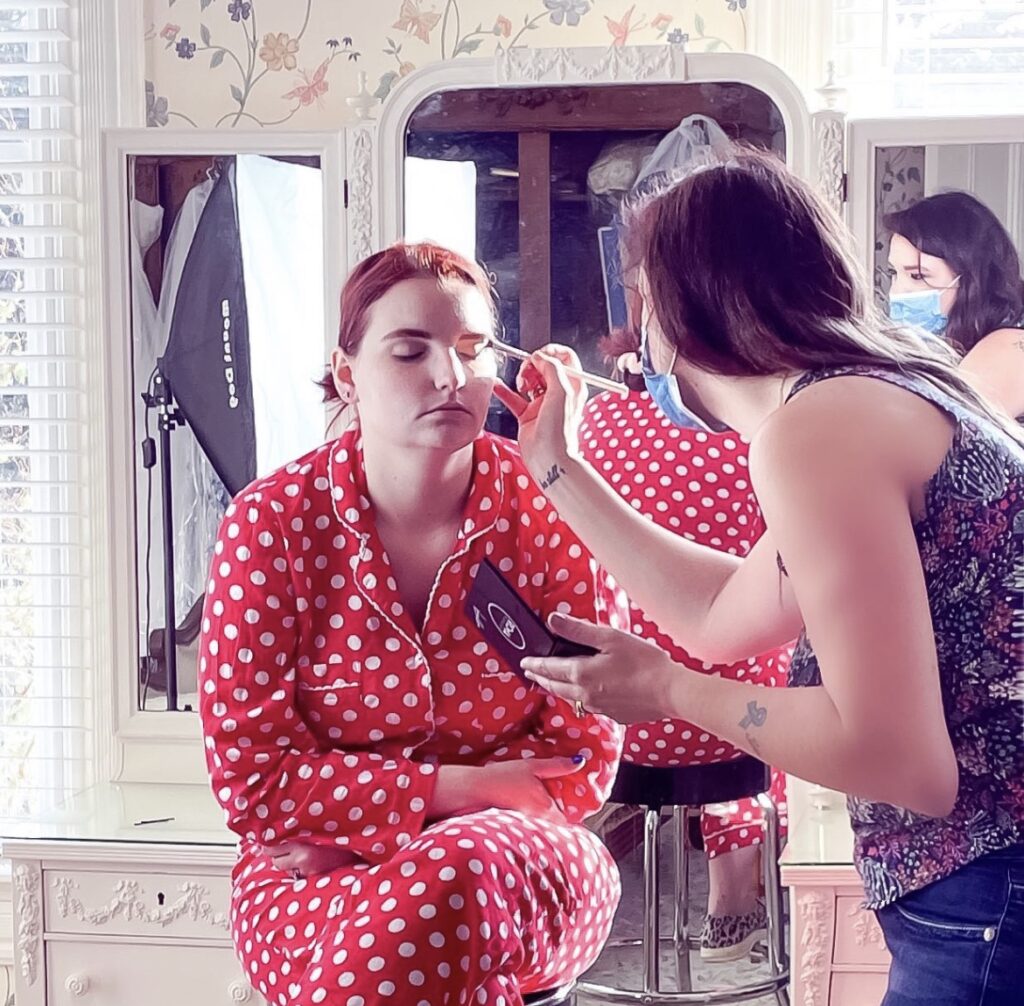
Most artists will not be able to accommodate larger bridal parties by themselves for that reason. Once you get over a certain number, most artists will contract out or bring another artist in to assist or they may ask you to find a second artist. I typically will do up to six people myself, but any more over that number, I will bring in another makeup artist to handle the extra members. I know my own limits and that I can not handle more than that unless we get started the night before and don’t sleep through the night (not my cup of tea)!
So, this is just another thing to consider. If you have a large bridal party planned, you may want to ask your MUA how they handle larger parties. If they bring an assistant or their own contracted MUA, I would make sure to ask for samples of the other person’s work, as well. They may not be your makeup artist, but you want to know that the other members of your wedding party will also be happy with their makeup.
There are also some artists that will provide a bridal touch up kit, while others will not. Your artists don’t typically stay for the wedding, so they are not usually there to touch up lipstick that has come off or other smudges that may occur. (Usually lipstick is the main one that will wear off first. I assure you even if you are wearing a matte lipstick, it will not last through an entire day and evening filled with kisses, sweating, dancing, toasts and eating). It is nice when your MUA leaves you a small kit to at least be able to touch up your lipstick, if need be. I personally always provide this to my brides and I usually try to make up kits for the wedding party, as well, unless we are pressed for time. But, this is just an extra personalized perk that I like to offer. Not every artist does this. I can attest that it can be tough to make these up for each person when you are rushed, trying to accommodate everyone on a schedule. But it‘s something to think about and ask your artist if they provide anything like this.
There are also some rules about the wedding day that makeup artists may have. Make sure you know the expectations up front. For example, you may be held responsible for any no shows or last minute run away bridesmaids that change their mind about needing makeup. Most artists will hold you responsible for the agreed to number of people identified in the contract, regardless of whether they had their makeup done or not. This also includes any list minute add-ons that are not covered in the contract. Ask your MUA how they handle these. I personally try to accommodate add-ons, but if we are crunched for time, I might not be able to get to them. I prioritize the ones who were agreed to in the contract first.
It’s always nice when your MUA provides you with an agenda/schedule and possibly a list of tips and guidelines for how the day will go for makeup. I like to provide this to my clients ahead of time so everyone is on the same page and feels a little more at ease. I feel that it is a good sign if your MUA is organized and good at communicating these details up front.
Sanitation Practices
You would hope that if you are hiring a professional, that they implement proper sanitation practices. However, you can never be too sure or too safe. The eyes and mouth are the fastest ways that germs spread, which is all the areas where makeup and makeup tools will touch your face. Good sanitation is absolutely a must!
In some states, MUAs do not have to be licensed to charge money as a professional makeup artist. I am actually not licensed myself and have never been to beauty school. I am self-taught and have gained my experience through beauty blogging and shadowing under other artists. In my state (Florida), as long as I am not performing chemical based procedures, I can charge for my makeup services. Many are reassured by a licensure, thinking it is regulated with health inspection checks, etc. But, this simply isn’t true in every state. Just like with selecting any other beauty option or even a good tattoo artist, you want to feel comfortable that you are receiving proper sanitation and hygiene services.
Especially in this age of COVID, it is essential that your MUA is sanitizing all brushes, cloths, makeup and tools applied to your face. If they are unwilling to wear a mask if you request it, that is a red flag, as well. MUAs have to be all up in your face and you are obviously not able to wear a mask while getting your makeup done. Therefore, if you prefer they wear one as a minimal effort, they should be respectful of your preferences.
Bottom line, if you notice that your artist is double dipping in the mascara tube while doing your lashes, fire them immediately, lol! Don’t feel bad about asking your MUA for details on how they sanitize. Some things are common sense but not every one knows that they really shouldn’t be re-using things like beauty blenders on different clients unless they have boiled them. Additionally, even asking them what kind of brush cleaner they use is valid. If I am re-using brushes on the same client, a regular brush cleaner spritz is okay. However, if I am re-using brushes on multiple clients, I only use makeup cleaner that has effective quick drying and sanitizing properties!
Diversity and Inclusion
A huge issue that often is not discussed is that of diversity and inclusion in the beauty industry. However, I’m going to address it and address it HARD! In this day in age, there is absolutely no excuse for a makeup artist to exclude particular skin tones and shades from their areas of expertise. It is their job to know what colors work for each and every person. Period! Yet, so often, a MUA will give an excuse, for example, that makeup for women of color (WOC) is not their specialty. If they do serve someone with deeper skin, they are prone to not serving them well, not having taken the time to do the research and practice for those who might be a minority. Often you will even find that local drugstores and beauty suppliers will not carry shades for WOC if it is a predominately white neighborhood or region.
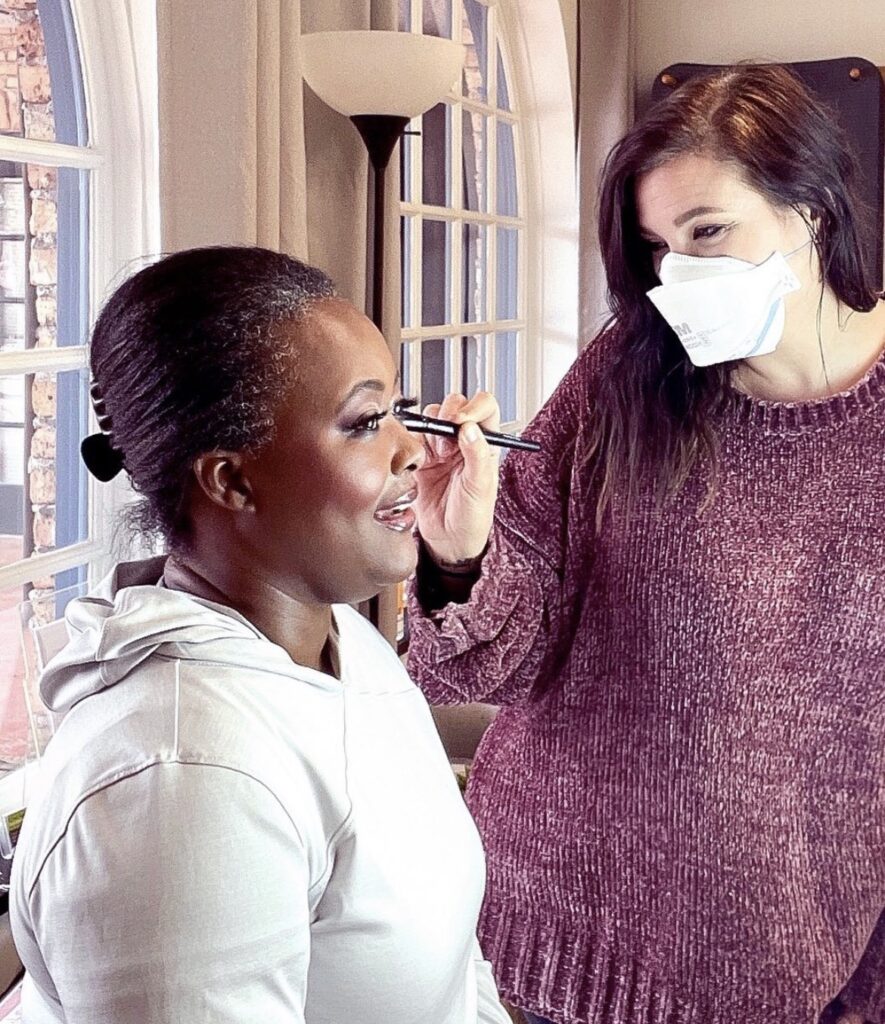
This may not be of importance to you if you are not a minority, but I assure you that it is a concern if you are. There are many who resort to doing their own makeup rather than risk getting theirs done by a white makeup artist, mostly because of the well known bad experiences of many in the industry. Every African American client I’ve encountered has given me a heads up and double and triple checked to make sure I was experienced with deep skin ahead of time. It is my opinion that they should not have to go to these great lengths to verify.
Another area of inclusion that is coming up more and more is inclusion for LGBTQ weddings. In this day in age, you can’t always just assume you will have a bride and a groom. You may be applying makeup for two brides or even for men. For many, this may not be a concern. However, again, I assure you that for those who are planning a gay wedding, this will be the first thing they check: which vendors are going to be LGBTQ-friendly and willing to serve them.
I am also often asked if I have experience with particular skin issues, such as acne and pigmentation. Makeup artists in general should be knowledgeable for how to handle each type of issue, whether it’s oily skin, acne or texture, etc. But these are all things to ask and consider when hiring an MUA. Are they diverse in their knowledge as well as in their practices?
This was a lot of information to include. Hopefully I covered everything you may have been wondering about and more! If you are planning your upcoming wedding, I congratulate you and wish you much luck on your special day. May everything, including your makeup, be the day of your dreams!
For more content like this in the future, don’t forget to subscribe to the blog. You can also follow my socials: My MUA Business Instagram Page as well as my Beauty Blog Page. Also find me on Youtube and Tik Tok.
